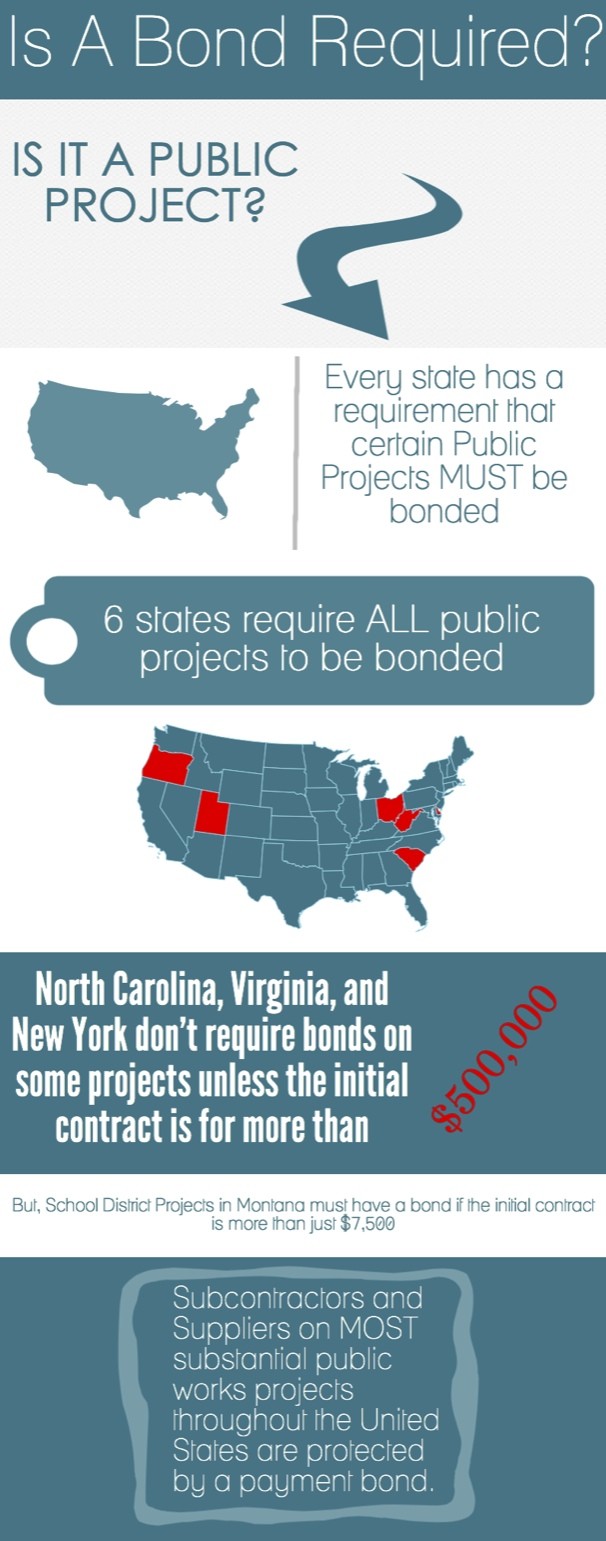
Generally speaking, when a party performs work on a public works project, the necessary remedy for non-payment is to make a claim against the payment bond. Similarly to the mechanics lien right available on private projects, a bond provides security to ensure payment of parties working on the project. Unlike a mechanics lien, however, making a claim against a payment bond does not encumber the underlying property. Instead of the claim being secured by the property itself, it is secured by the availability of a large pool of money specifically obtained for that purpose. Since the government is presumably well-funded enough to pay the general contractor for the particular project, and will not be forced to give up its interest in public property to a construction or building materials supply entity, the bond generally provides security to subcontractors and suppliers in lieu of the right to file a mechanics lien.
Bonds for Public Projects Required In Every State – Amounts That Trigger The Responsibility Differ
Every state has some rule designating the value of an original contract for a public works project that necessitates that project be covered by a payment bond. The amounts that trigger that responsibility, however, differ from state to state.
Some states require a bond to be obtained for each and every public project, while others are content to raise the triggering contract amount to $200,000, $300,00, $500,000, or potentially even more. Generally speaking, however, a bond is routinely required when the original contract exceeds an amount closer to $25,000 or $50,000.
While a bond claim is different that a mechanics lien in the exact security provided, it still protects the rights of subcontractors and suppliers to get paid on construction projects. The follow-up work to receive payment from a bonding company may sometimes be difficult, but, since it doesn’t require the foreclosure sale of real property it can be accomplished faster than prosecuting a mechanics lien to final payment. On public projects where a bond is required, payment bonds provide strong protection to parties who, on a provate project, would be protected by filing a mechanics lien.


